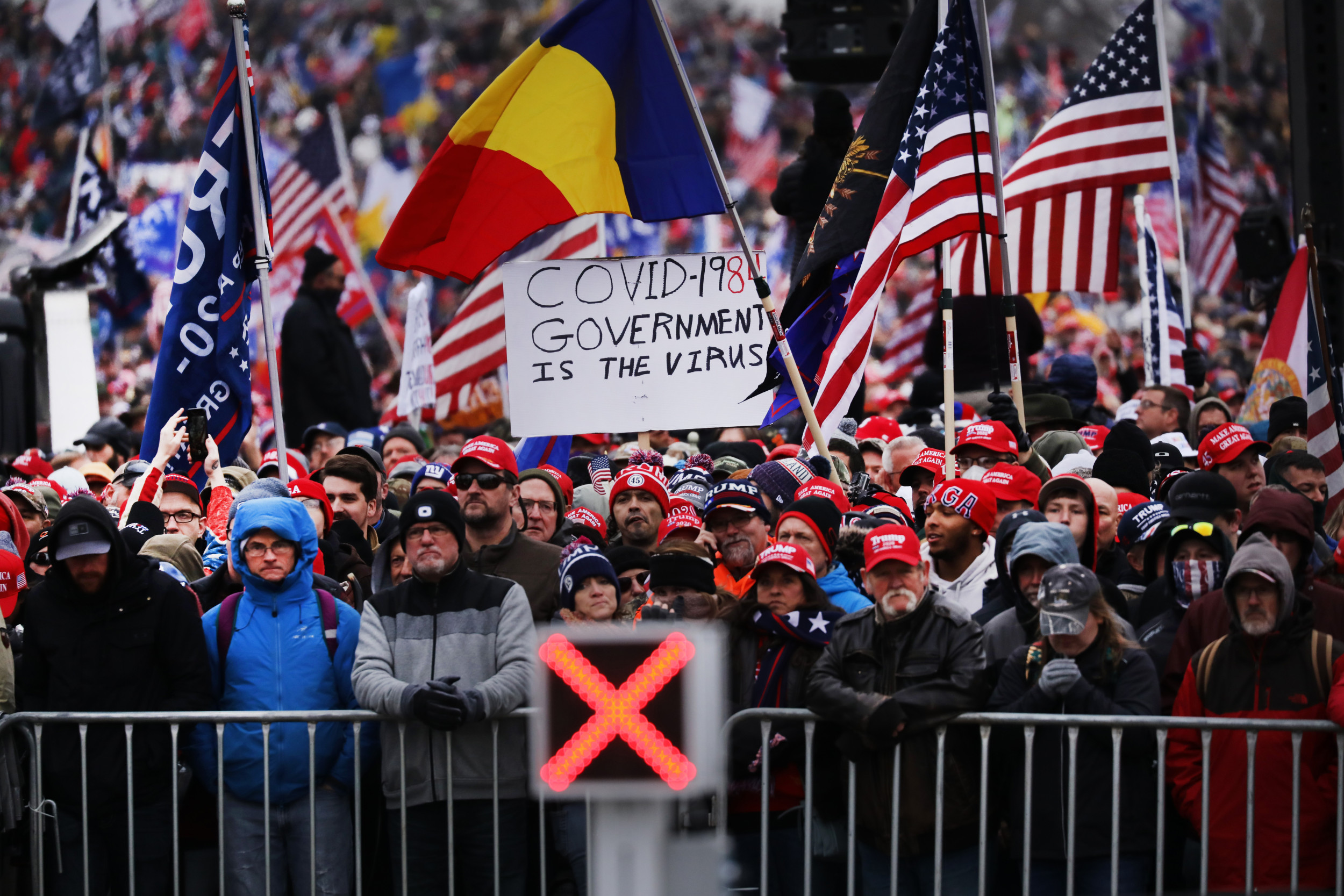Map shows top states for conspiracy theorists
Texas, Florida and California residents are among the most likely to be conspiracy theorists, say Americans, according to a recent survey.
With less than a year to go until Election Day, misinformation campaigns are rife. These conspiracy theories range from claims of widespread voter fraud to allegations that Taylor Swift is a political operative for the left, and they could have a profound effect on voters’ behavior, according to Oddspedia.
The statistics database site, which surveyed a representative sample of 3,000 Americans across the country, found that respondents believed Florida was most likely to be home to conspiracy theorists, with California, Texas, New York and Alabama rounding out the rest of the top five.
The states that appeared to be least susceptible to conspiracy theories, according to those asked, were Maryland, Rhode Island, Hawaii and North Dakota. States in New England were more likely to be rated lower, with Massachusetts, Maine and Vermont all near the end of the rankings.
Conspiracy theories are unfounded beliefs that certain events or situations are secretly manipulated by powerful groups or individuals. These theories often lack credible evidence and rely on suspicion and mistrust of official explanations.
Four out of five Americans admitted to believing some kind of conspiracy theory, with Republican respondents being more likely to embrace them than Democrats.
The top conspiracy theories were primarily related to election fraud, COVID-19 origins, and government surveillance.
There were significant party divides depending on the theory put forward. Sixty five percent of Democrats said that foreign entities have a “very” or “moderate” impact on U.S. elections, compared to 49 percent of Republicans and 56 percent of Independents.
Additionally, 83 percent of respondents said they believed that conspiracy theories impact how people reach opinions about politics, with 90 percent saying conspiracy theories about specific candidates could potentially affect how voters see them. Seventy percent of survey respondents highlighted Twitter (now X) and Facebook as the top sites for spreading conspiracy theories, particularly about the pandemic and secret societies.

WASHINGTON, DC – JANUARY 06: Crowds arrive for the “Stop the Steal” rally on January 06, 2021 in Washington, DC. A recent survey found that popular conspiracy theories were centered on COVID-19 and government influence.
Spencer Platt/Getty Images
Shing Mon Chung, a spokesperson at Oddspedia, told Newsweek: “Americans seem more likely to endorse conspiracy theories than other nations. The media landscape, which itself is very polarized, can promote the spread of conspiracy theories by reinforcing existing beliefs and biases.
“This is even more true for social media – which plays a key role in spreading conspiracy theories because of its global reach and rapid dissemination through one’s personal “echo chambers”.
“The pandemic created a global atmosphere of uncertainty and fear, and the lockdowns and social distancing measures meant that people were isolated and reliant on the media and digital platforms for communication and information.
“Mixed messages, changing guidelines, and regional discrepancies increased public mistrust in the government and health organizations, thus creating a fertile environment for conspiracy theories about the virus’s origins, vaccine safety, and lockdown motives run rampant.”
Conspiracy theories have found fertile ground to grow in the U.S because of the nation’s long standing public distrust in authority, governments, and institutions. This sentiment which has been part of the national consciousness when combined with political polarization creates a perfect climate for conspiracies to be used as political weapons.
Certain types of conspiracy theories were particularly prevalent in specific states. Delaware was highlighted as a state with a heavy focus on government cover-up conspiracies, while New Hampshire emerged as a hub for pandemic-related theories about medical manipulation and unsafe vaccines.
Nebraska saw a lot of activity around alien conspiracies, which also had overlap with historical revisionist theories. 37 percent of Americans nationally admitted to believing in a conspiracy theory based around extraterrestrial life while 38 percent said they doubted some historical narratives. West Virginia was identified as the center for conspiracy theories about secret societies, like the Illuminati, and global cabals.
Do you have a story we should be covering? Do you have any questions about conspiracy theories? Contact LiveNews@newsweek.com
Uncommon Knowledge
Newsweek is committed to challenging conventional wisdom and finding connections in the search for common ground.
Newsweek is committed to challenging conventional wisdom and finding connections in the search for common ground.


